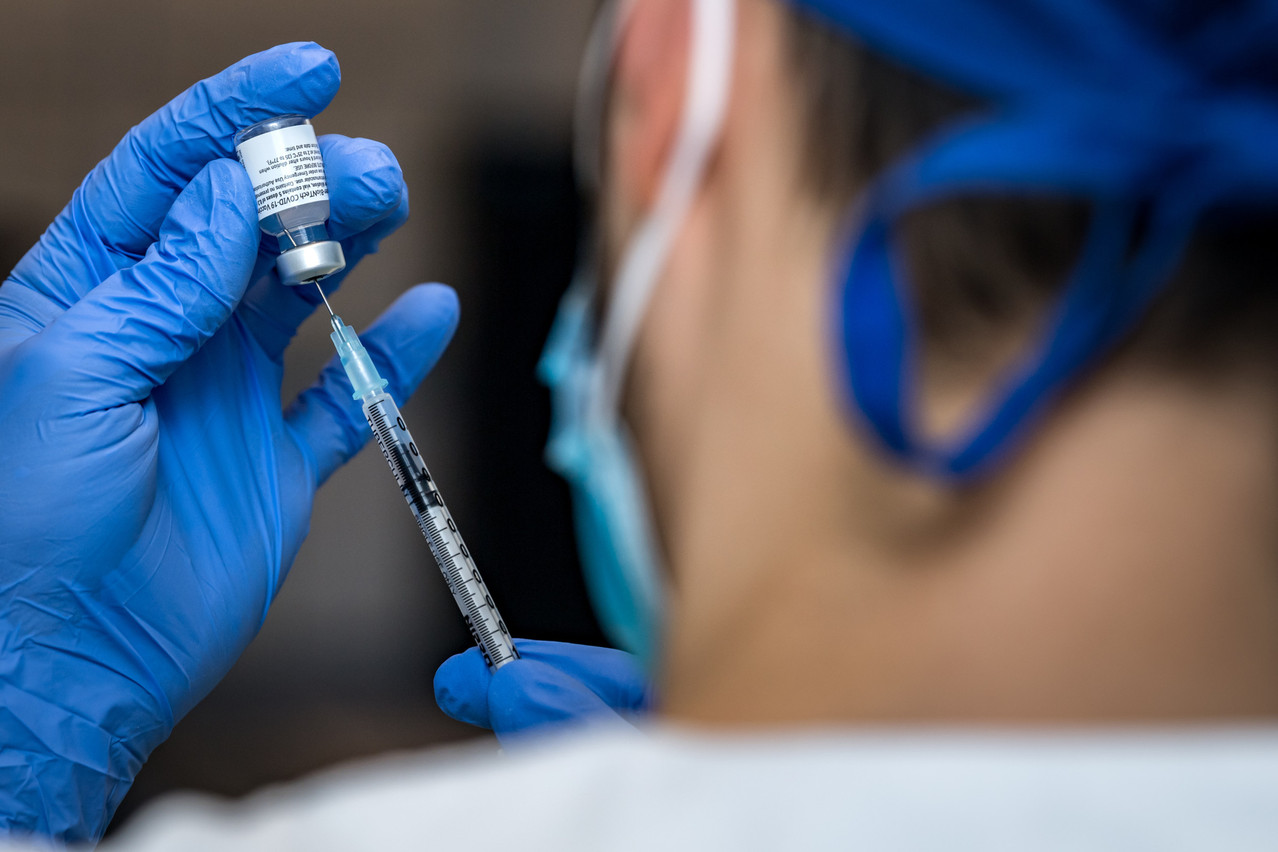When announcing the on Wednesday, Xavier Bettel (DP) said that compulsory vaccination, whether sectoral or general, would be discussed in January. “It is a subject of discussion. We are doing comparative studies and [consulting] legal opinions on the subject. We want to know in January,” said the prime minister. Health minister Paulette Lenert (LSAP) added that it was “necessary to have a legal basis”, while indicating that she wanted to use the measure of compulsory vaccination “as a last resort”.
But more and more voices are beginning to call on the government to take responsibility by imposing compulsory vaccination.
A few weeks ago, the federation of Luxembourg hospitals (FHL) said it was in favour of compulsory sectoral vaccination. The Cercle des médecins anesthésistes-réanimateurs du Grand-Duché de Luxembourg (CMARL) goes even further, saying it was in favour of a general compulsory vaccination. “Sectoral vaccination obligation is not sufficient and, in the hospital environment, it represents a drop in the bucket compared to the number of unvaccinated people in the population,” said Dr. Philippe Welter, president of CMARL. “Moreover, it gives the impression that you catch covid-19 in hospitals, which is not the case,” he adds.
Without vaccination, we won't make it.
It is estimated that 500 of the approximately 8,000 staff in Luxembourg's four major hospital groups are not vaccinated, while approximately 110,000 people eligible for vaccination in the country's resident population have not yet been fully immunised.
“Without vaccination, we won't make it. Some people say that even if you are vaccinated, you can end up in hospital. That's true. But I can't imagine what it would be like if we didn't have a vaccine. We experienced it last year, and we don't want to go through that again,” says Dr. Welter. "It is up to the government to assume its responsibilities and make vaccination compulsory. At present, it is a very strong recommendation or a thinly disguised obligation with restrictive measures, but it remains a free and personal choice. The responsibility is therefore quite different", said the president of the CMARL. This is reminiscent of the position of OGBL president Nora Back, who has repeatedly expressed regret at what she sees as the government avoiding taking responsibility for the vaccination issue.
president of the Consultative Commission on Human Rights (CCHR), had stressed that the use of compulsory vaccination in Luxembourg “would be a justifiable and legitimate infringement of human rights”.
As a reminder, on 1 February 2022, Austria will make vaccination compulsory for its entire population. The idea is beginning to gain ground in Germany and other European countries. On 1 December last year, European Commission President Ursula von der Leyen, also said that it was time to think about it and discuss the issue. Compulsory vaccination will undoubtedly be an unavoidable issue in the early days of 2022.
This story was first published in French on . It has been translated and edited for Delano.
